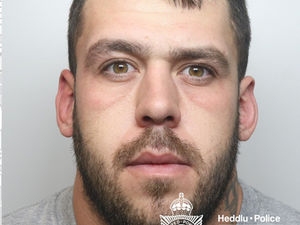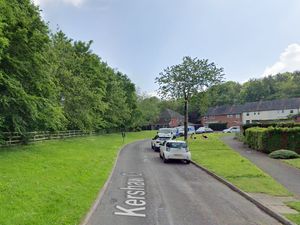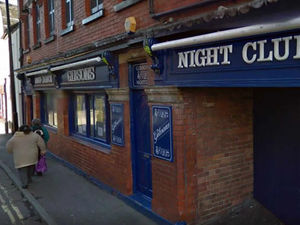Shropshire judge calls for internet giants to act over 'vile' child sex abuse images
A Shropshire judge has warned that the sharing of "vile" child abuse images online will go on until internet giants work together to stamp it out.

Judge Anthony Lowe was speaking after an Oswestry man was caught with more than 2,000 indecent images of children on his computer.
"Until internet providers get their heads together and there is a concerted effort worldwide to stop such images being viewed, nothing is going to change," said Judge Lowe.
Paul Hughes, 48, of Park Street, Oswestry, kept pictures and videos of children as young as two being abused on a phone and a tablet computer, while search terms found on the devices included 'Lolita' and 'schoolgirl'.
But despite the seriousness of the images, he managed to avoid jail. Judge Lowe said Hughes deserved a custodial sentence, but that a community order would be less likely to lead to him downloading illegal images again.
Hughes was arrested in December 2017 after an account on the social media app Kik Messenger, which was called 'Oswestry Man' and linked to his home IP address, uploaded an indecent image of a child.
Officers found 185 images of category A, depicting the most serious abuse, 196 of category B and 1,763 of category C, on his Samsung phone and Sony tablet.
Caroline Harris, prosecuting, told Shrewsbury Crown Court that Hughes had denied the offences and had been due to stand trial next week until he changed his pleas to guilty.
Representing Hughes, Stephen Scully said: "The likelihood is that, if he was jailed, he would lose his relationship. There have been difficulties in his relationship because of his offending, that comes as no surprise to anyone."
'Viewing vile images feeds the production'
The judge said that Hughes deserved to go to jail but it would only push him further into isolation and increase the risk of him feeding his "addiction" for indecent images.
"It's clear to me that once people like you become isolated in various ways... the temptation to look at similar images is very much increased," said Judge Lowe.
"You could have lost your job, lost your relationship and possibly lost your home.
"I'm not actually bothered about you losing those things; frankly you deserve to lose those things for what you did.
"You were viewing real children – these aren't fictional, they aren't acting – aged three to four, five to seven, who are being subjected to the most vile sexual abuse. This is happening to a child somewhere in the world. The viewing of it feeds the production."
The judge added: "I have always taken the view that one of my roles is to try and prevent a repetition of offending."
He gave Hughes a community order, including 40 days of rehabilitation activity and 200 hours of unpaid work.
The same sentence was applied for all three offences of making indecent images and one of possessing a prohibited image.
Hughes will also have to notify police if he changes his address.
'Committed to providing a safe place'
The Shropshire Star contacted Kik, Google and Facebook (which also owns WhatsApp and Instagram) and asked about Judge Lowe’s comments.
Kik’s vice president for content & safety operations, Lauren Jamar, said: “Kik is committed to providing a safe place for users to connect with their friends and the world around them.
“We take proactive measures to create a user-community that reflects Kik’s values, and do so in a number of ways. While we value users’ privacy, we do not provide end-to-end encryption like other messaging platforms (such as iMessage, WhatsApp or Telegram).
“This allows us to proactively moderate content on the platform at the time it’s being sent.
“We use AI technology (PhotoDNA) to automatically scan shared images and video against a national database of known insidious content. When a match is detected, the user is automatically banned and in most cases forwarded on to the appropriate law enforcement agency.
“We automatically ban groups which use certain words/phrases.
“We employ (US-based) human moderators to review escalated/flagged content.
'Heinous crime'
“We give our users the power to control their interactions and report violations directly from the app.
“We work closely with law enforcement agencies and the National Center for Missing and Exploited Children (NCMEC) to identify bad actors.”
In its response Google referred to a blog from 2018 in which it said it had taken steps since 2006 to stop child abuse material being shared.
The blog said: "Technology, and the methods used by those who seek to exploit it, are constantly evolving and there will always be more to do to tackle this heinous crime.
"We are crystal clear about our responsibility to ensure our products and services offer safe experiences, and we are fully committed to protecting children from sexual exploitation."
Facebook, which also owns Instagram and WhatsApp, did not respond.





